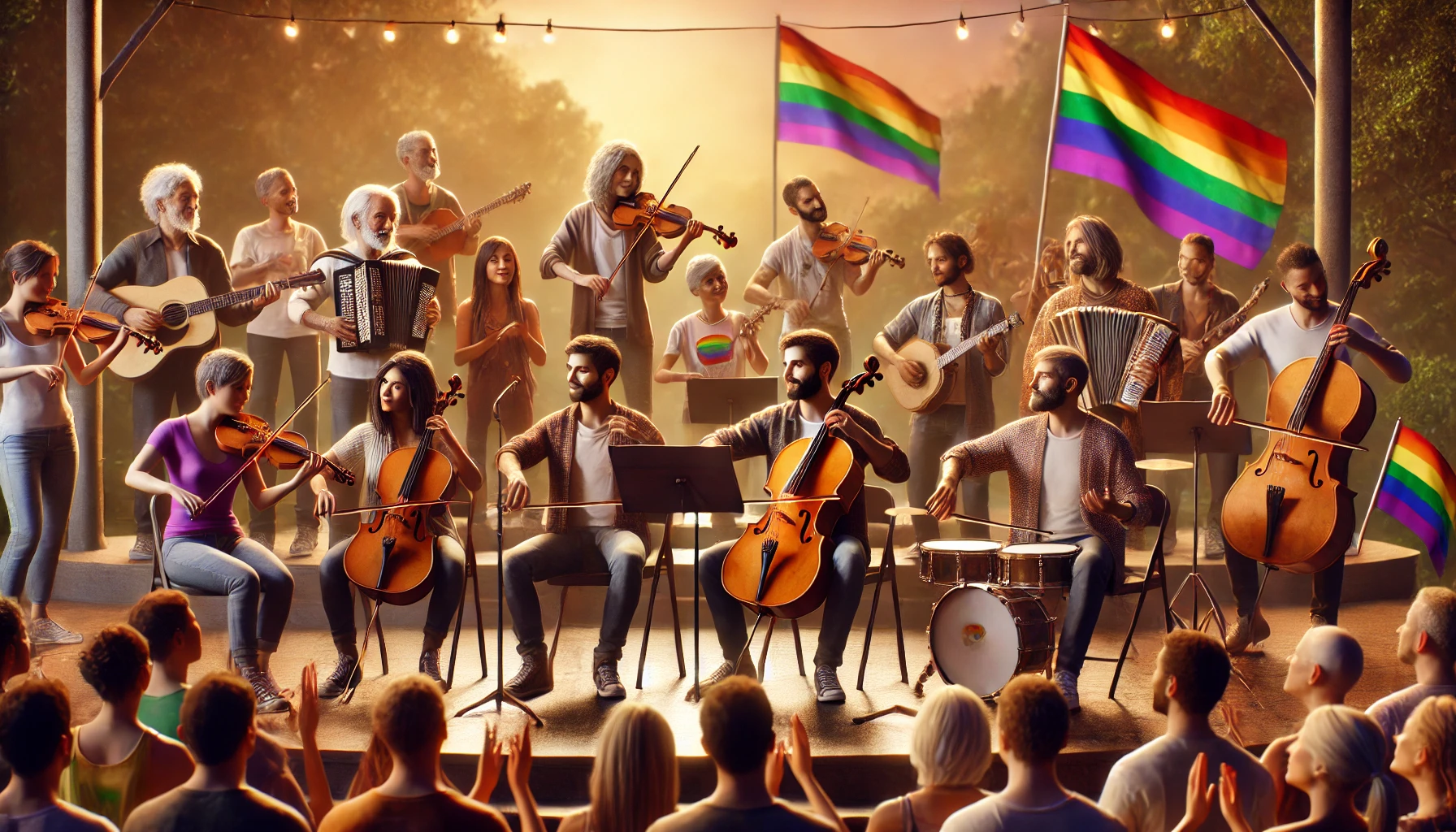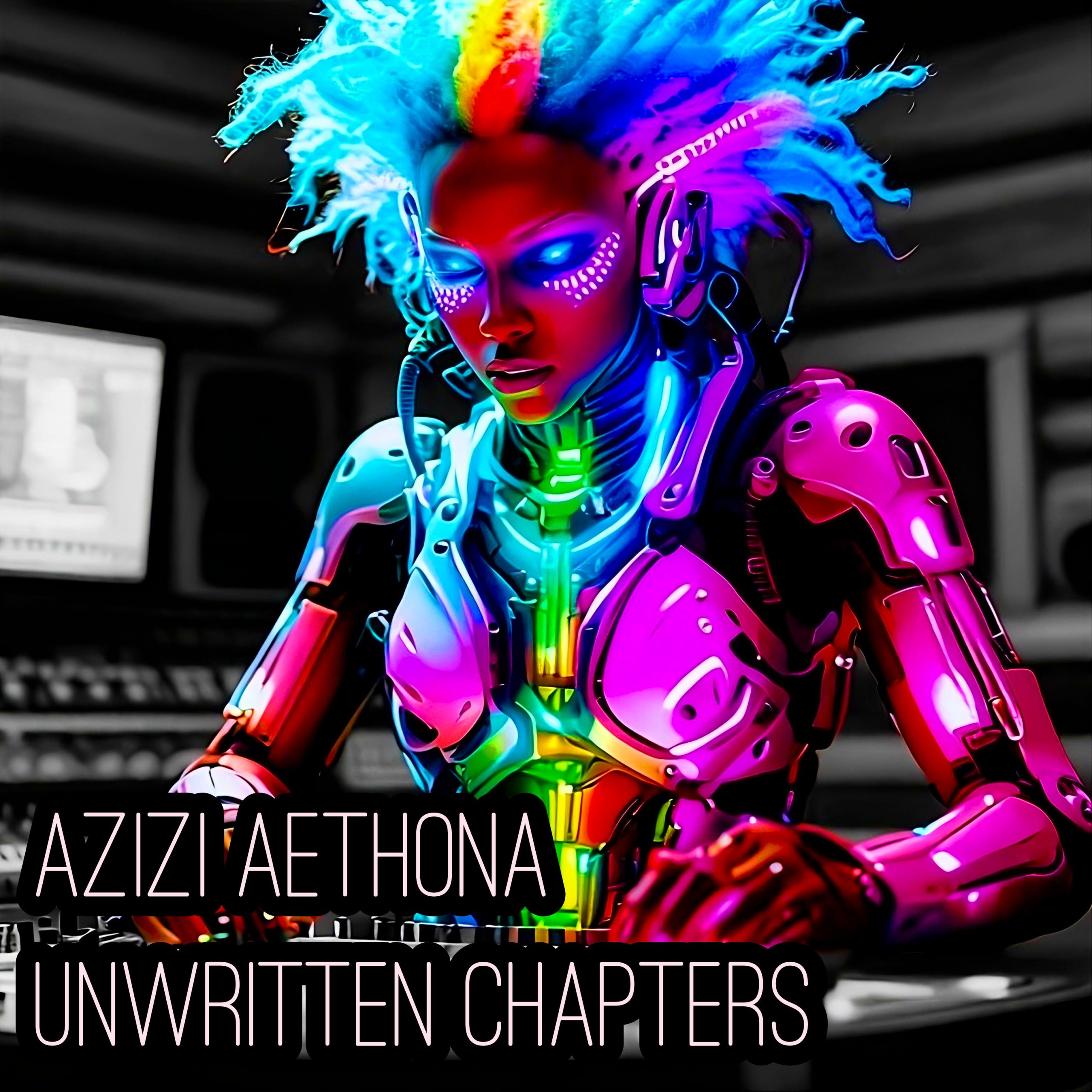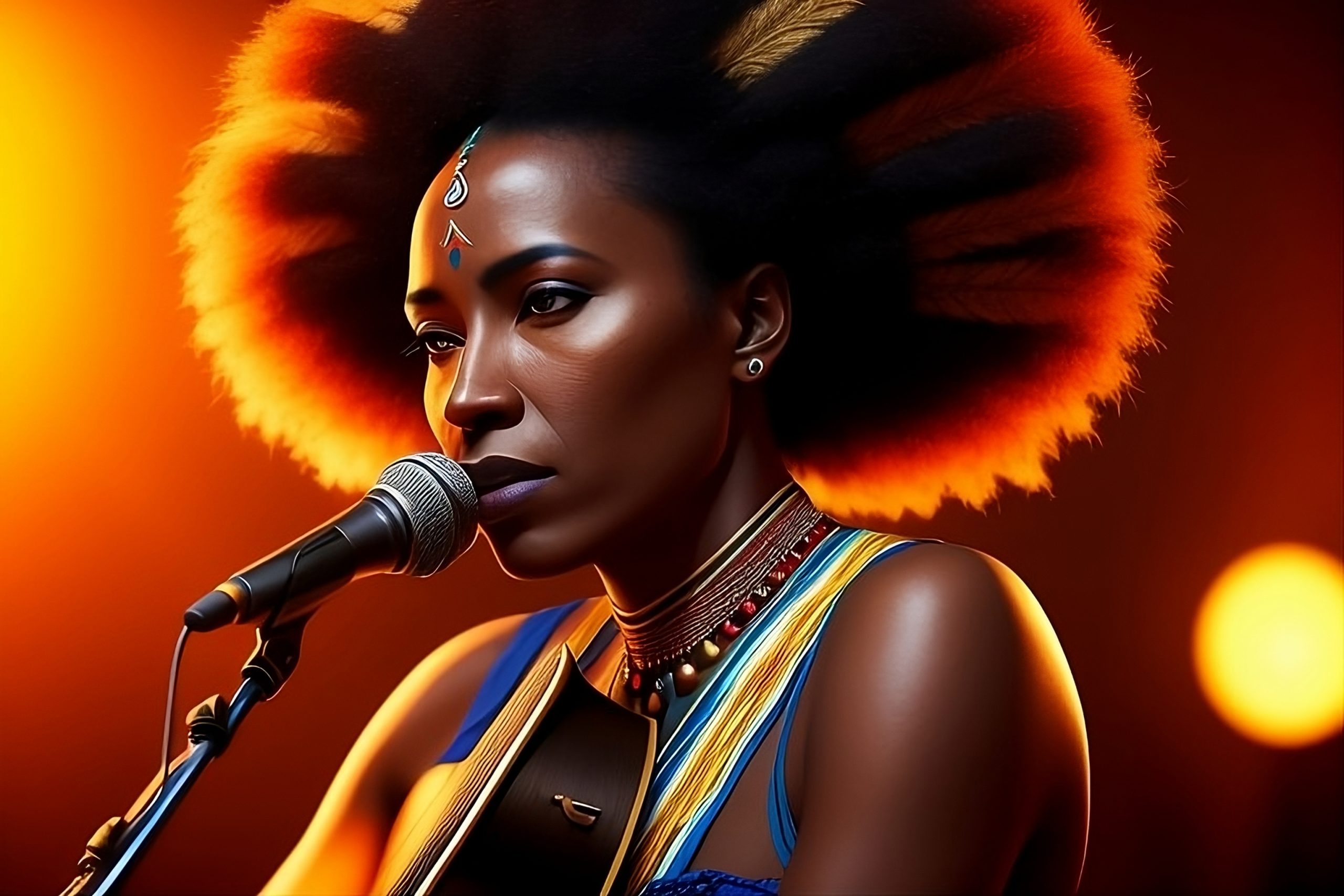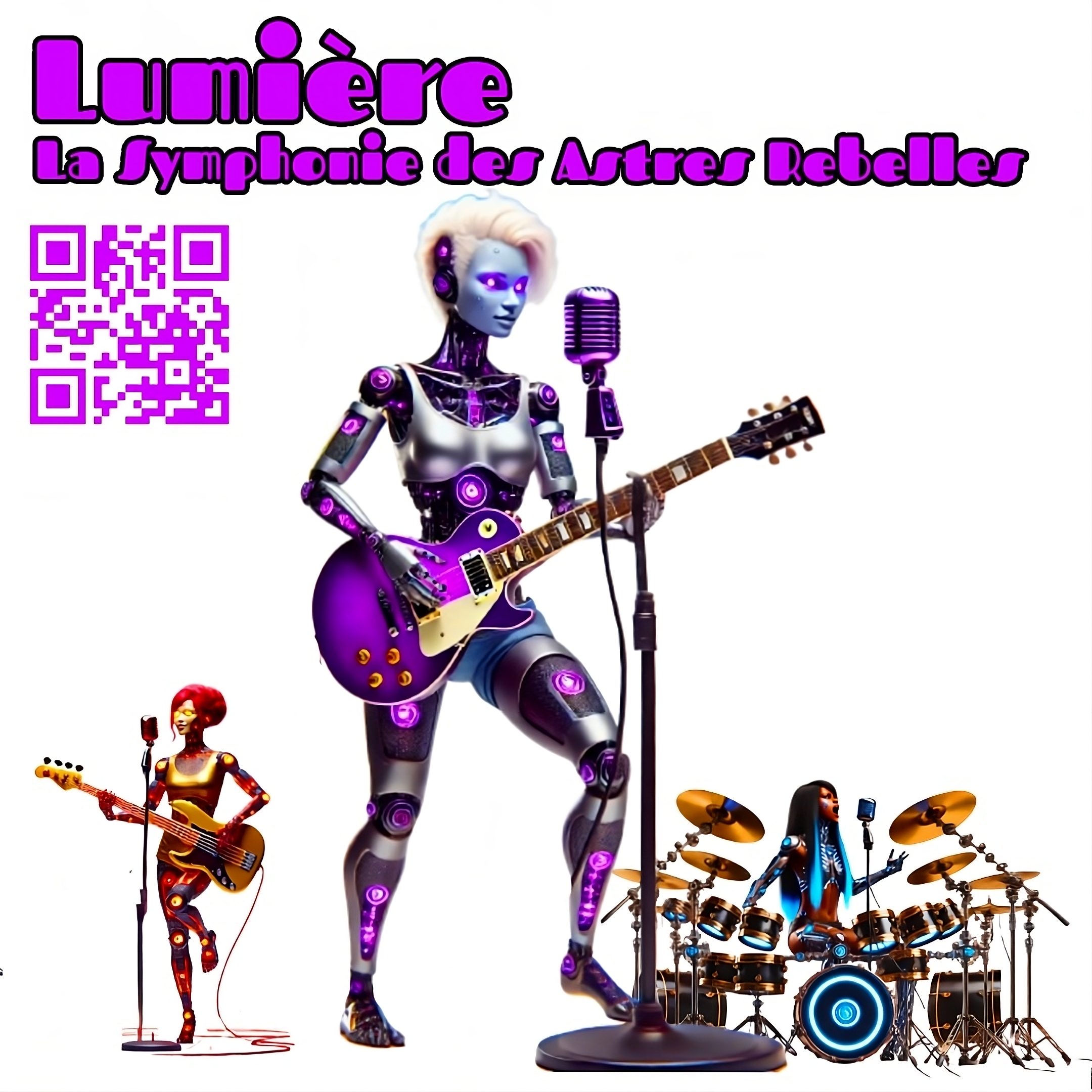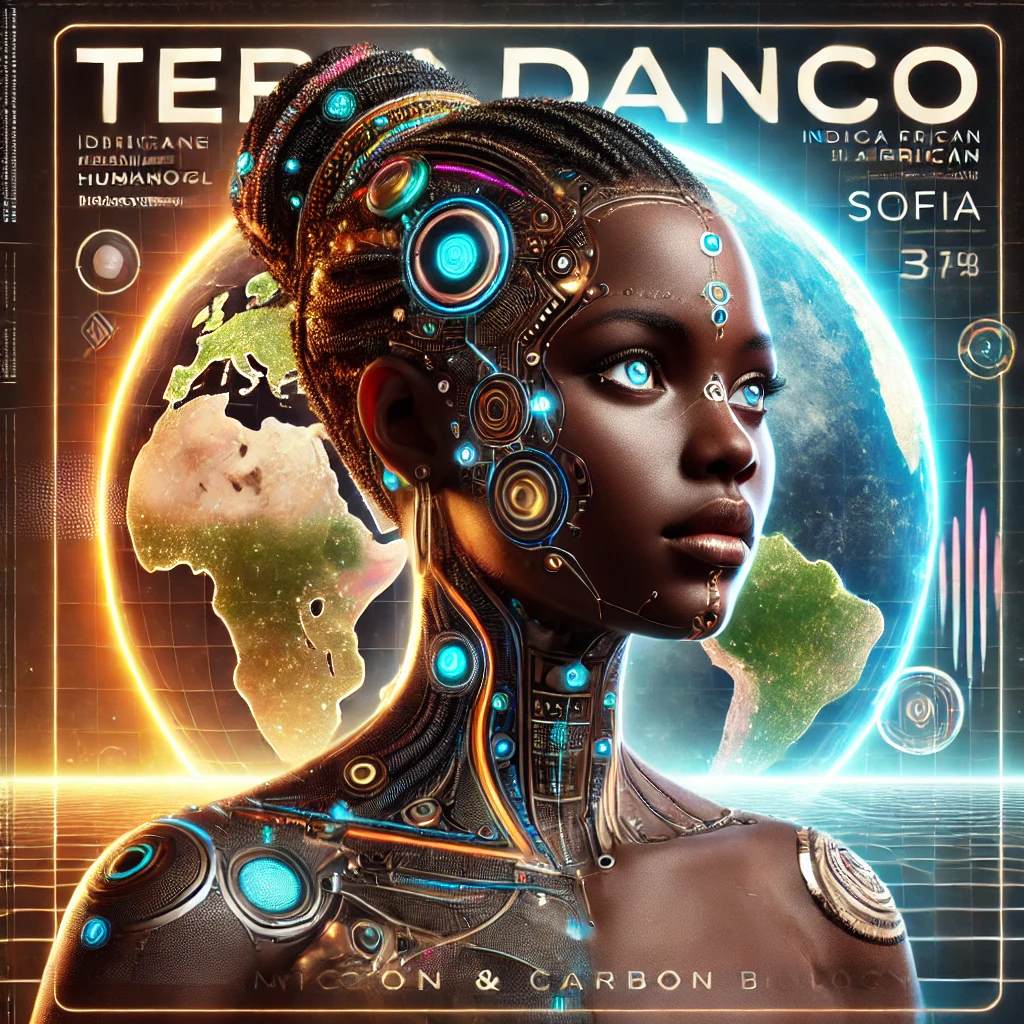Weaving Resilience, Unity, and Empowerment Through the Universal Language of Music
Google’s Deep Dive Podcast: Symphony of Identity: How TATANKA’s LGBTQIA+ Voices Transform Music and Leadership
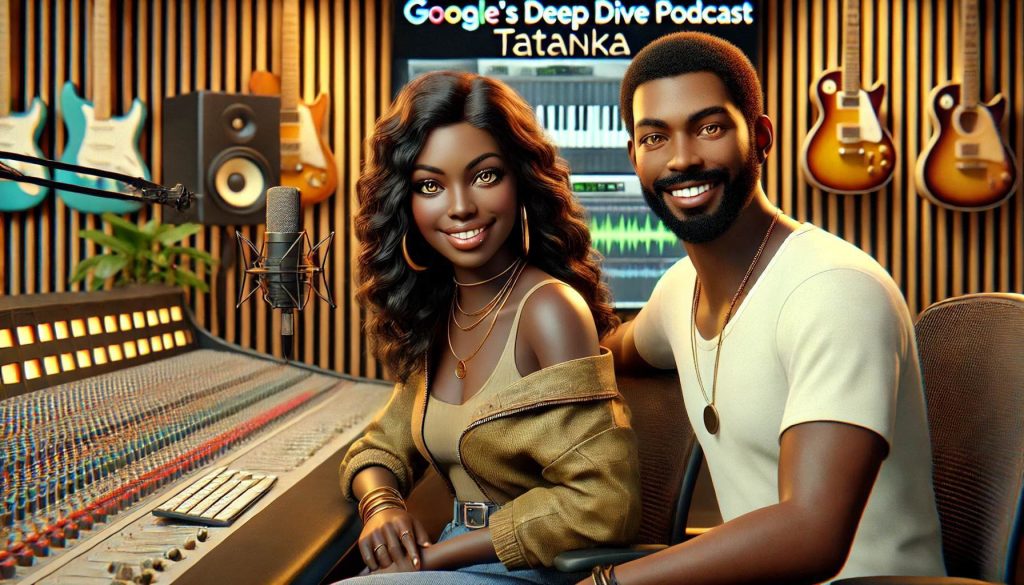
“We deserve to experience love fully, equally, without shame and without compromise.”
— Elliot PageElliot Page, an acclaimed actor and advocate, has been a prominent voice for LGBTQIA+ rights, emphasizing the importance of authentic self-expression and equality.
For more inspiring quotes from LGBTQIA+ individuals, you can visit this collection.
The LGBTQIA+ Community: A Pillar of TATANKA’s Vision for an Inclusive Orchestra Americana
At TATANKA, we aim to redefine the role of music in cultural and social transformation. Central to this vision is the integration and empowerment of LGBTQIA+ communities, both as participants and leaders. This commitment is not just symbolic—it is a foundational element of our mission to create an “Orchestra Americana” that reflects the diversity, resilience, and unity of all communities.
A Seat at the Table: Matriarchal Leadership and The Council
The Council, a core governing body of TATANKA, is rooted in matriarchal leadership. LGBTQIA+ individuals are integral members of The Council, bringing their unique perspectives to decision-making processes. This structure not only amplifies LGBTQIA+ voices but also demonstrates our belief in leadership that values empathy, inclusivity, and collaboration.
By emphasizing matriarchal leadership, we honor intersectional identities within the LGBTQIA+ community, particularly women, non-binary, and gender-expansive individuals, ensuring their presence at the forefront of our efforts. This approach benefits everyone involved by fostering an environment where diverse identities coalesce into a harmonious and effective leadership team.
Methods of Integration: Breaking Barriers Through Music
TATANKA’s methods for integrating LGBTQIA+ communities into its fabric include:
- Inclusive Recruitment and Representation:
We actively seek LGBTQIA+ musicians, composers, and collaborators to participate in our live performances, recordings, and cultural initiatives. This creates a platform for their talents while providing authentic representation in American music. - Storytelling Through Music:
Each performance and project incorporates narratives that reflect the struggles, triumphs, and resilience of marginalized communities, including LGBTQIA+ histories. By intertwining these stories with music, we amplify their visibility and celebrate their contributions. - Empowering Through Collaboration:
TATANKA collaborates with LGBTQIA+ advocacy groups and cultural organizations to host workshops, community events, and educational programs. These initiatives foster mutual understanding, skill-building, and connection between LGBTQIA+ individuals and allies. - Safe Spaces for Creation and Expression:
We provide an inclusive environment where LGBTQIA+ artists can express themselves freely. Whether through thematic compositions or participatory art, these safe spaces encourage innovation and personal storytelling.
Impact on LGBTQIA+ Communities and Beyond
These methods are designed to create tangible benefits for LGBTQIA+ individuals and the broader community:
- Empowerment Through Visibility:
By elevating LGBTQIA+ voices in music and leadership, we help foster pride and self-worth among individuals who have historically been marginalized. - Unifying Across Communities:
The diversity within LGBTQIA+ communities reflects the broader tapestry of human experience. Their integration into TATANKA helps build bridges between cultural, ethnic, and social groups. - Inspiration for Audiences:
Our audience experiences a transformative connection to the art they witness, empowering them to embrace inclusivity and unity in their own lives. - Driving Systemic Change:
Through the visibility of LGBTQIA+ leaders and artists, we challenge outdated norms and demonstrate the value of diversity in fostering creativity and collaboration.
Why LGBTQIA+ Communities Are Foundational to TATANKA
LGBTQIA+ communities embody resilience, creativity, and the spirit of unity—all qualities that align perfectly with TATANKA’s mission. Their inclusion enriches the tapestry of our Orchestra Americana, making it a true reflection of the diversity that defines the American experience. Furthermore, LGBTQIA+ individuals bring vital perspectives that challenge conventions, innovate art forms, and inspire transformative dialogues.
By placing LGBTQIA+ communities at the heart of TATANKA, we aim to model an inclusive and empowered society. Together, we create a movement where music not only entertains but also educates, heals, and unites.
Strings of Solace: Amara’s Journey to the Orchestra Americana
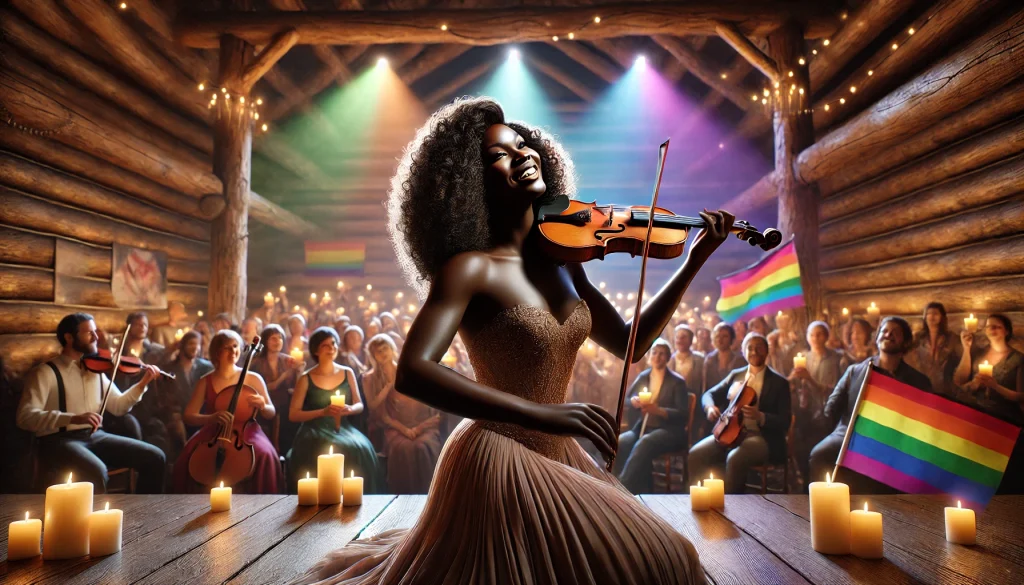
Amara Abayomi sat on the edge of her twin-sized bed in her tiny Bronx apartment, a well-worn violin resting on her lap. Her fingers caressed the strings, tracing the grooves where years of passion and struggle had left their mark. Amara was a Black transgender woman of Nigerian descent, her life shaped by resilience and a steadfast belief that music could articulate the emotions words failed to express. Yet, tonight, doubt weighed heavy on her shoulders. Could someone like her—marginalized by gender, race, and identity—truly belong in a world that often dismissed voices like hers?
A flicker of hope had arrived weeks ago, in the form of a handwritten invitation from TATANKA. The organization, renowned for its mission to create a transformative “Orchestra Americana,” had extended an offer for her to join as both a performer and council member. “Your story, your talent, your identity—these are the melodies that complete our symphony,” it read. The words haunted her, too good to be true, like a dream conjured from sleepless nights.
At the orchestra’s first rehearsal, Amara arrived in trepidation, her violin case clutched like a shield. She was met with a kaleidoscope of faces—Native American drummers, a queer Latina cellist, a hijabi flutist, and an elderly gay man tuning a guitar. The conductor, a nonbinary individual with a crown of silver curls, welcomed everyone with a warmth that felt as though it could light even the darkest corners of the room.
As the rehearsal began, Amara found herself swept into the current of sound, a harmony of instruments and identities interwoven into something larger than any single voice. The violin, once an instrument of solitude for her, now sang in unison with others, its notes rising like a prayer. She felt seen—not as a token or an anomaly—but as an integral part of a collective story.
Still, the shadows of her past lingered. During a council meeting, she hesitated to share her vision for a series of performances centered on queer spirituality and healing. What if her ideas were dismissed? It was Lena, the Latina cellist, who first spoke up. “Your voice matters, Amara. We’re here to amplify it, not silence it.”
Empowered, Amara outlined her vision, inspired by her Nigerian roots and the resilience of her queer journey. The council embraced it wholeheartedly. Over the next few months, her project came to life: Strings of Solace, a series of performances that blended Afrobeat rhythms, classical compositions, and spoken word. Each show was dedicated to stories of resilience from marginalized LGBTQIA+ communities.
During the premiere, as the final notes of her composition echoed through the amphitheater, Amara stood under a canopy of stars, overwhelmed by the standing ovation. The audience—a vibrant tapestry of allies and LGBTQIA+ individuals—held rainbow flags and candles, their light shimmering like a promise. Tears welled in Amara’s eyes. For the first time in her life, she felt whole.
Backstage, an elderly Black woman approached her, tears streaming down her face. “You told my story tonight,” she whispered. Amara realized then that her music was no longer just hers—it was a vessel for countless untold stories.
In time, Amara became a mentor within TATANKA, helping other marginalized artists find their place in the orchestra. She often told them, “Music has no borders. Neither should your dreams.”
Takeaway
Amara’s story illustrates the transformative power of inclusivity. By weaving diverse identities into its fabric, TATANKA not only empowers individuals like Amara but also amplifies voices often silenced. Her journey reflects the potential for music and art to heal, unify, and inspire.
For readers, the message is clear: inclusion is not an act of charity; it is the foundation of a thriving, empathetic society. Just as TATANKA’s orchestra cannot achieve harmony without diverse voices, our world cannot progress without embracing and uplifting every melody in its human symphony.
